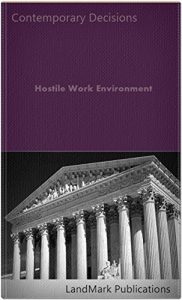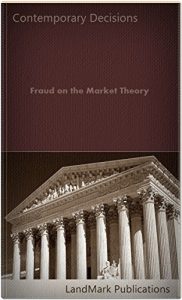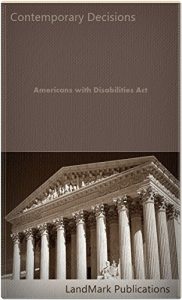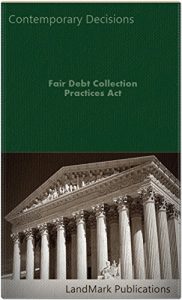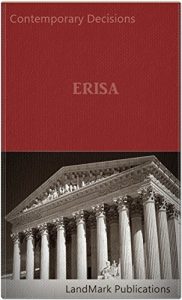THIS CASEBOOK contains a selection of 201 U. S. Court of Appeals decisions that analyze, discuss and apply provisions of the Tucker Act. The selection of decisions spans from 2005 to the date of publication.
The Tucker Act provides the Claims Court with jurisdiction over claims "against the United States founded either upon the Constitution or any Act of Congress or any regulation of an executive department, or upon any express or implied contract with the United States or for liquidated or unliquidated damages in cases not sounding in tort." 28 U.S.C. § 1491(a)(1). However, the Tucker Act is "only a jurisdictional statute; it does not create any substantive right enforceable against the United States for money damages." United States v. Testan, 424 U.S. 392, 398 (1976). "Instead, to invoke jurisdiction under the Tucker Act, a plaintiff must identify a contractual relationship, constitutional provision, statute, or regulation that provides a substantive right to money damages." Khan v. United States, 201 F.3d 1375, 1377 (Fed. Cir. 2000). Acevedo v. US, (Fed. Cir. 2016).
Under the Tucker Act, as amended, the Court of Federal Claims has bid protest jurisdiction over "action[s] by an interested party objecting to a solicitation by a Federal agency for bids or proposals for a proposed contract or to a proposed award or the award of a contract or any alleged violation of statute or regulation in connection with a procurement or a proposed procurement." 28 U.S.C. § 1491(b)(1). Coast Professional, Inc. v. US, (Fed. Cir. 2016).
Sovereign immunity protects the United States from suit absent consent that is "unequivocally expressed." United States v. Bormes, 133 S. Ct. 12, 16 (2012) (internal quotation marks omitted). As a general matter, the Tucker Act provides the necessary consent for, inter alia, "any claim against the United States founded . . . upon the Constitution." 28 U.S.C. § 1491(a)(1). [Footnote omitted.] Notwithstanding that broad language, "[t]he Tucker Act has been held inapplicable where Congress has provided alternative remedies under other statutes." Abreu v. United States, 468 F.3d 20, 30 (1st Cir. 2006). This is so because the Tucker Act is "simply [a] jurisdictional provision[ ] that operate[s] to waive sovereign immunity for claims premised on other sources of law." Bormes, 133 S. Ct. at 17 (quoting United States v. Navajo Nation, 556 U.S. 287, 290 (2009)). Hence, if the law on which a claim is premised contains its own, more limited, judicial remedies, "[t]he Tucker Act is displaced." Id. at 18. Paret-Ruiz v. US, (1st Cir. 2016).
The Tucker Act provides the Claims Court with jurisdiction over claims "against the United States founded either upon the Constitution or any Act of Congress or any regulation of an executive department, or upon any express or implied contract with the United States or for liquidated or unliquidated damages in cases not sounding in tort." 28 U.S.C. § 1491(a)(1). However, the Tucker Act is "only a jurisdictional statute; it does not create any substantive right enforceable against the United States for money damages." United States v. Testan, 424 U.S. 392, 398 (1976). "Instead, to invoke jurisdiction under the Tucker Act, a plaintiff must identify a contractual relationship, constitutional provision, statute, or regulation that provides a substantive right to money damages." Khan v. United States, 201 F.3d 1375, 1377 (Fed. Cir. 2000). Acevedo v. US, (Fed. Cir. 2016).
Under the Tucker Act, as amended, the Court of Federal Claims has bid protest jurisdiction over "action[s] by an interested party objecting to a solicitation by a Federal agency for bids or proposals for a proposed contract or to a proposed award or the award of a contract or any alleged violation of statute or regulation in connection with a procurement or a proposed procurement." 28 U.S.C. § 1491(b)(1). Coast Professional, Inc. v. US, (Fed. Cir. 2016).
Sovereign immunity protects the United States from suit absent consent that is "unequivocally expressed." United States v. Bormes, 133 S. Ct. 12, 16 (2012) (internal quotation marks omitted). As a general matter, the Tucker Act provides the necessary consent for, inter alia, "any claim against the United States founded . . . upon the Constitution." 28 U.S.C. § 1491(a)(1). [Footnote omitted.] Notwithstanding that broad language, "[t]he Tucker Act has been held inapplicable where Congress has provided alternative remedies under other statutes." Abreu v. United States, 468 F.3d 20, 30 (1st Cir. 2006). This is so because the Tucker Act is "simply [a] jurisdictional provision[ ] that operate[s] to waive sovereign immunity for claims premised on other sources of law." Bormes, 133 S. Ct. at 17 (quoting United States v. Navajo Nation, 556 U.S. 287, 290 (2009)). Hence, if the law on which a claim is premised contains its own, more limited, judicial remedies, "[t]he Tucker Act is displaced." Id. at 18. Paret-Ruiz v. US, (1st Cir. 2016).

